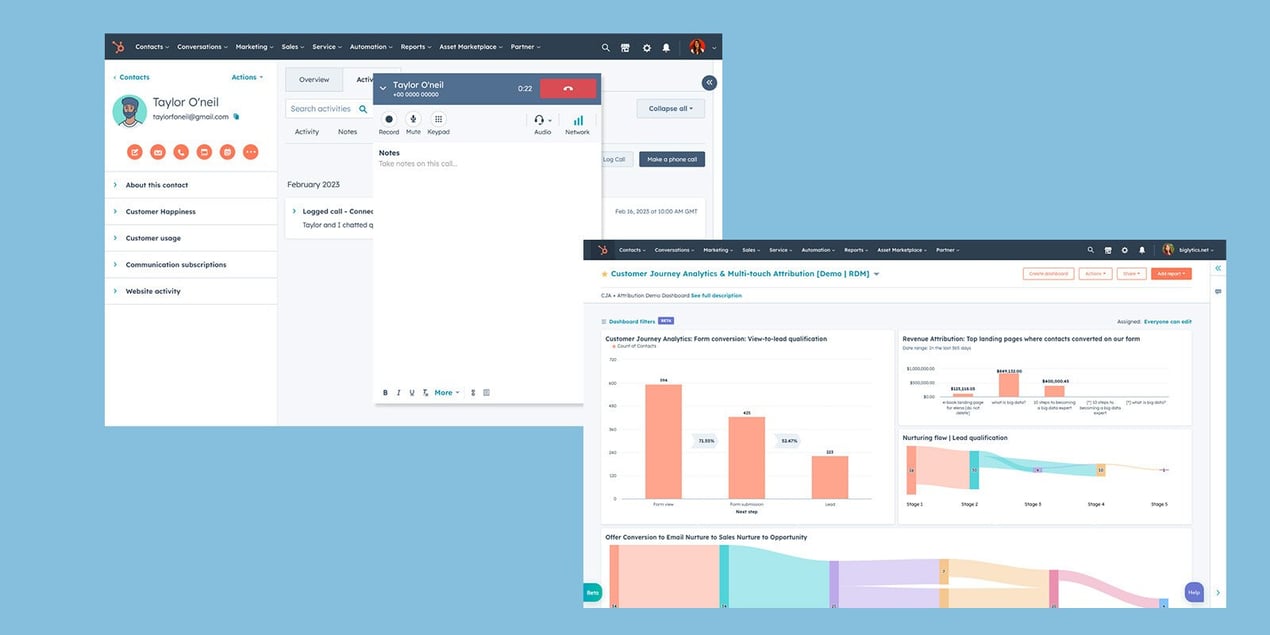In today's competitive business environment, customer relationship management or CRM systems, are essential tools for businesses of all sizes.
A well-chosen CRM system can help streamline customer interactions, improve sales pipelines, and enhance customer service. With so many options on the market, choosing the right CRM for your business can feel overwhelming. To help simplify the process, here are five good CRM systems you should consider, each offering unique features and benefits.
But first a word on types of CRM systems, and video summary from me.
Different Types of CRM Systems
Customer Relationship Management comes in many different forms. So you need to select the right CRM system for you application.
Below is a screenshot I took from the blog of a project management system called ClickUp. Now they've called their project management system a CRM. In fairness, it is a tool for better customer management from a project perspective - it's just not a CRM systems in the true sense of the word.
That being said, their summary of each system is very accurate - so I've reproduced it here for your benefit.

1. HubSpot CRM
Best for: Growing businesses looking for a comprehensive, scalable CRM solution.
HubSpot CRM is a robust platform designed to grow with your business. It offers a range of powerful tools to manage customer relationships, track sales activities, and streamline marketing and service efforts. Unlike some CRMs that specialise in one area, HubSpot provides an all-in-one solution that covers sales, marketing, and customer service, making it ideal for businesses looking to consolidate their tools into one platform.
With HubSpot CRM, you can automate repetitive tasks, nurture leads through personalised email sequences, and track interactions across various touchpoints. The platform integrates seamlessly with over 1,000 apps, giving you the flexibility to tailor it to your business's unique needs.
HubSpot's advanced reporting features enable you to analyse performance metrics across your entire customer journey, providing valuable insights to drive growth.
Key Features:
- Advanced marketing automation and sales tools
- Comprehensive reporting and analytics
- Seamless integration with third-party apps
- Scalable with the ability to add advanced functionality as your business grows
HubSpot is a great choice for businesses looking to streamline operations while maintaining the flexibility to scale as needed.
2. Salesforce CRM
Best for: Large enterprises and businesses with complex needs.
Salesforce is a powerhouse in the CRM world, known for its extensive range of features and customisability. This platform can cater to businesses of any size, but it is especially valuable for enterprises that require advanced functionality and scalability. Salesforce offers tools for sales, marketing, customer service, and analytics, allowing businesses to create a fully customised CRM experience.
While Salesforce can be more expensive and has a steeper learning curve than other CRMs, its flexibility and integration capabilities make it worth the investment for larger organisations.
Key Features:
- Highly customisable
- Advanced analytics and reporting
- Comprehensive integration with third-party apps
- Automation features for sales and customer service
3. Zoho CRM
Best for: Small businesses looking for affordability and customisation.
Zoho CRM is a budget-friendly option that doesn't skimp on features. It offers everything you need to manage your sales pipeline, from lead generation to closing deals. Zoho's suite of productivity apps integrates seamlessly with the CRM, making it a versatile choice for businesses that need to connect with various departments.
Zoho CRM also provides AI-driven insights through its Zia assistant, helping users make informed decisions based on predictive analytics. It's an excellent option for businesses that want flexibility in their CRM system at an affordable price point.
Key Features:
- Affordable pricing tiers
- Customisable dashboards and workflows
- AI-powered insights with Zia assistant
- Integration with Zoho's suite of business tools
4. Pipedrive
Best for: Sales teams that need a visual, easy-to-use CRM.
Pipedrive is designed with sales teams in mind, offering a clean, intuitive interface that focuses on helping users move deals through the sales pipeline. The platform's visual approach makes it easy to track leads, monitor sales activities, and follow up with prospects at the right time. Pipedrive is simple to set up and requires minimal training, making it a great option for businesses that need a quick-start CRM solution.
Though it's primarily sales-focused, Pipedrive also offers integrations with various marketing and communication tools, so you can manage multiple aspects of your business within one platform.
Key Features:
- Visual sales pipeline management
- Easy-to-use interface
- Customisable deal stages
- Integrations with email and marketing tools
5. Microsoft Dynamics 365
Best for: Businesses needing advanced analytics and integration with Microsoft products.
Microsoft Dynamics 365 is a robust CRM platform ideal for businesses already using Microsoft's suite of tools. It offers comprehensive CRM and ERP functionality, allowing businesses to manage sales, customer service, finance, and operations from a single platform. Dynamics 365 integrates seamlessly with Outlook, Excel, and other Microsoft applications, creating a highly productive environment for teams that rely on these tools.
The platform also excels in providing advanced analytics and AI-driven insights, which help businesses make data-informed decisions and improve efficiency. Dynamics 365 is suitable for larger organisations or those that require complex, scalable solutions.
Key Features:
- Integration with Microsoft Office tools
- Advanced analytics and AI insights
- Unified CRM and ERP platform
- Scalable for larger enterprises
Conclusion
Choosing the right CRM system for your business depends on your specific needs, budget, and long-term goals. Whether you're a small business looking for a free, easy-to-use solution like HubSpot, or an enterprise requiring advanced features and customisation with Salesforce, there's a CRM out there to help streamline your processes and boost productivity. Evaluate the key features of these five CRM platforms and consider how they align with your business objectives before making your decision.
Each of these CRM systems offers unique capabilities, making them solid choices for improving customer relationships and driving business success.







